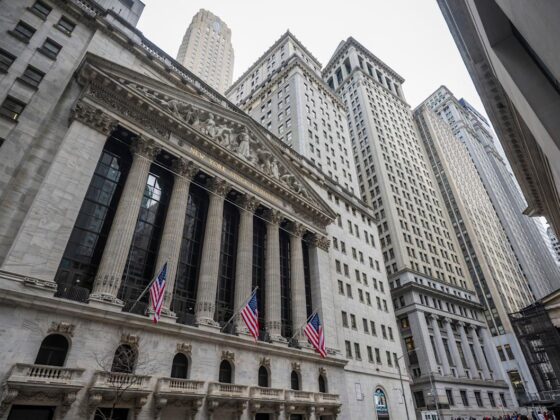Stocks tumbled from record highs on Friday as data revealed the US labor market is not on as solid footing as previously thought.
On the week, the S&P 500 (^GSPC) fell nearly 2.4%, while the Nasdaq Composite (^IXIC) slid 2.2% and the Dow Jones Industrial Average (^DJI) shed 1.2%.
Markets will be greeted with a quieter week of economic news with no major releases anticipated.
Meanwhile, another busy week of corporate releases is set to greet investors with 122 S&P 500 companies set to report, led by Palantir (PLTR), Eli Lilly (LLY), and Disney (DIS).
Markets exited Wednesday's Federal Reserve press conference leaning toward no interest rate cuts in the near future. That narrative flipped on its head on Friday morning.
The latest monthly jobs report showed the US labor market added fewer jobs than expected in July while the unemployment rate moved higher, and revisions to prior months' numbers revealed significantly fewer jobs had been added than initially thought.
In its release, the BLS said downward revisions to the May and June jobs reports “were larger than normal,” with those changes showing more than a quarter million fewer jobs were added to the economy over those months. May's job gains were revised down to 19,000 from 144,000, while June's additions were cut to just 14,000 from the 147,000 initially reported.
Market pricing and economists argue Friday's report was likely a game changer for the overall economic narrative and how the Fed will move forward. Following Friday's jobs report, the probability of a September interest rate cut from the Fed surged to 83%, up from just 38% the day prior, per the CME FedWatch Tool.
“Our base case since January has been that the Fed won't cut rates this year,” Bank of America Securities US economist Shruti Mishra wrote in a note to clients. “However, we have been arguing that the most likely alternate scenario is that labor market deterioration will force the Fed into ‘bad cuts', which could play out at a pace of at least 25bp per meeting. The massive downward revision to payrolls in the July jobs report increases the probability of this scenario.”
The July jobs report showed the US economy may be slowing more than initially thought, sparking a Friday market sell-off.
“Ultimately, stocks do better in a stronger economy than one that requires the intervention from the Fed,” Interactive Brokers chief strategist Steve Sosnick told Yahoo Finance.
The economic growth concerns clouded what had been a positive week for the market as Big Tech earnings revealed AI investment is not stopping anytime soon. In at note to clients on Friday, Capital Economics senior market economist James Reilly wrote that Friday's market-sell off is likely “overdone,” as AI will remain the “key driver” of global equities.













